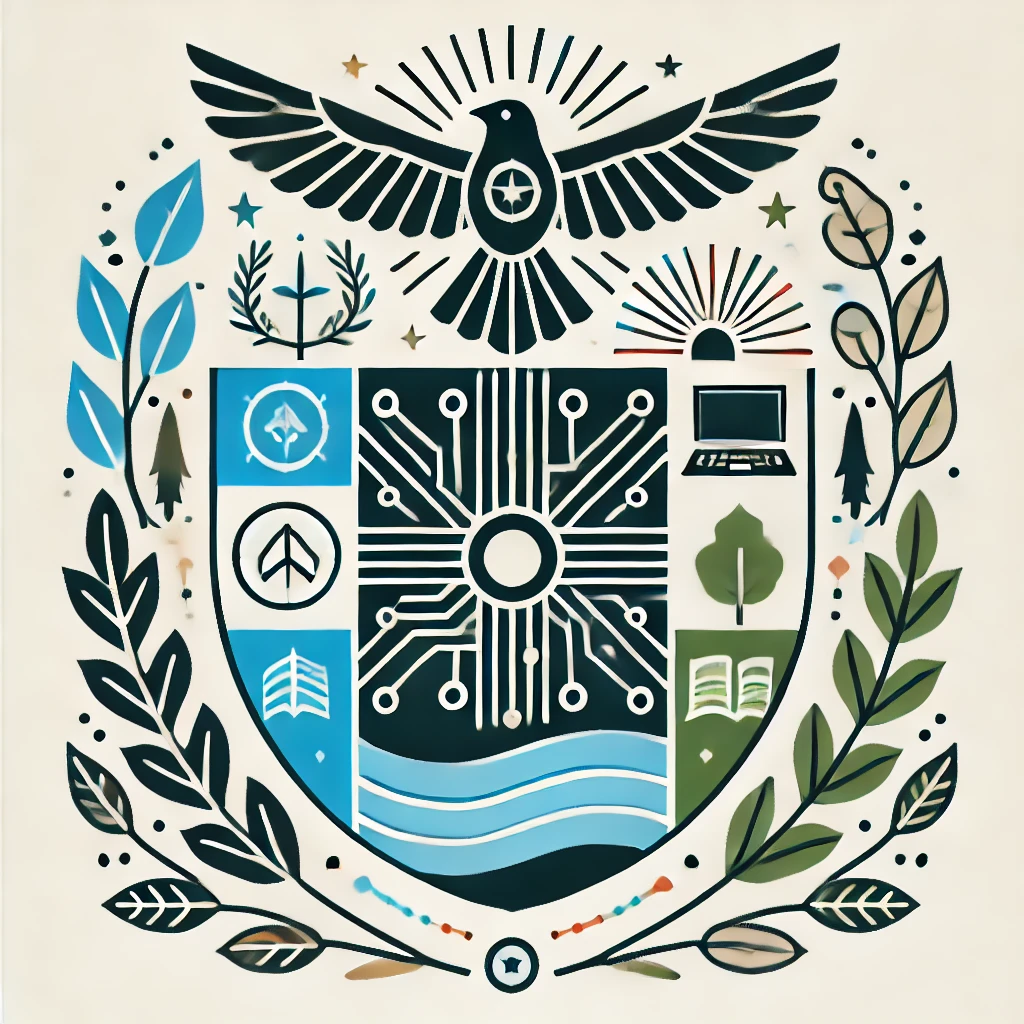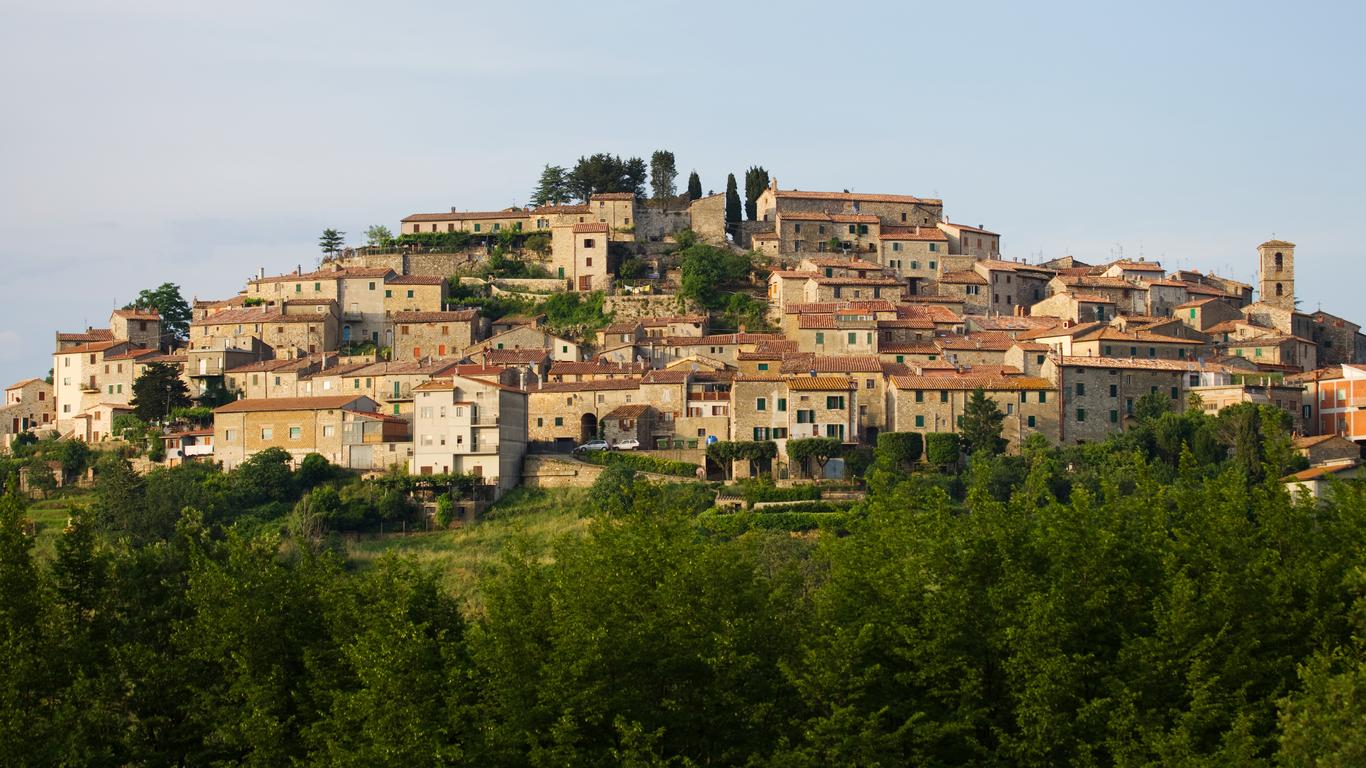

Preamble
We, the founding citizens of the Kingdom of Cryptonia, declare the establishment of an independent nation based on the principles of freedom, transparency, and collective participation, governed by a Decentralized Autonomous Organization (DAO) to ensure fairness, autonomy, and cooperation.
Our nation is committed to respecting the balance between technology and nature, promoting sustainable innovation and individual freedom from traditional political and financial systems.
This constitution establishes the foundation for a decentralized, transparent and participatory governance, with a strong commitment to financial autonomy and environmental sustainability. Cryptonia is a nation founded on collaboration, technology and respect for nature, where every citizen has the power to influence the future of the community through the power of the DAO.
Article 1: Fundamental Principles
Form of Government: Cryptonia is a parliamentary monarchy, where the Monarch is the head of state, while the legislative power is entirely managed through a DAO platform that operates on the blockchain to ensure transparency, participation and security. The Monarch acts in accordance with the Constitution and the principles of separation of powers, ensuring balance between institutions.
The Monarch: is the symbol of the unity and continuity of the nation. His functions are exclusively ceremonial, representative and attributing noble titles. The monarchic title is hereditary, transmitted according to a pre-established dynastic line. However, the Monarch must swear loyalty to the Constitution and the democratic ideals of the nation. In the event of the absence or inability of the Monarch to exercise his functions, the succession is transmitted to the eldest Duke.
People’s Sovereignty: All decisions regarding governance, resource distribution and development of the nation are determined by citizens through the DAO platform, where each citizen has the right to vote or veto proportional to the governance tokens in their possession.
Freedom and Autonomy: Every citizen of Cryptonia has the right to individual freedom and autonomous management of their own resources. The government cannot impose restrictions without the consent of the majority.
Balance between Technology and Nature: Cryptonia is committed to maintaining a balance between technological innovation and respect for the environment, integrating sustainable practices into all aspects of national life.
Article 2 : Of the Noble Right
a. Cryptonia recognizes the existence of a noble class, which has a historical and cultural role within the State, although it does not exercise any political power.
b. Noble titles are granted exclusively by the Monarch and can be hereditary or granted for life, according to the rules established in this article and in the specific laws on noble law.
c. The recognized noble titles are: Duke/Duchess, Count/Countess and Knight/Lady.
Granting of Noble Titles
a. The Monarch has the exclusive power to grant new noble titles in recognition of exceptional services rendered to the nation or special merits.
b. The granting of a noble title does not entail legal or political privileges, but represents a symbolic honor that testifies to the recipient’s commitment and value to the nation.
c. The granting of noble titles must be formalized by royal decree, which will be recorded in a special Register of Nobility, kept under the authority of the Monarch.
Transmission and Inheritance of Titles
a. Hereditary noble titles are transmitted according to the dynastic law established by the Monarch or the founder of the noble house and are subject to the laws of Cryptonia.
b. The succession of a noble title must respect the established dynastic line, which may provide for transmission by primogeniture, agnatic or cognatic, according to the provisions of the founder of the title or the Monarch.
c. In the absence of direct heirs, the title may be returned to the Crown, which will decide whether to abolish it, assign it to another member of the family or grant it to a new individual.
Rights and Duties of the Nobility
a. Nobles have the duty to represent the nation with dignity and respect, contributing to its cultural, social and philanthropic life.
b. Nobles may be invited to participate in state ceremonies and official events as a symbol of historical continuity and tradition, but may not hold government roles solely by virtue of their title.
c. Members of the nobility are subject, like all citizens, to the laws of the nation and do not enjoy any privileged treatment before the courts.
Revocation of Noble Titles
a. The Monarch has the power to revoke a noble title in the event of unworthy behavior, serious dishonor or violation of the laws by the holder.
b. The revocation of a title must be formally decreed and recorded in the Register of Nobility.
Reform of the Nobility System
a. The noble right can be modified by the DAO with a majority of 80% of the votes.
b. Any reforms cannot modify the rights acquired by nobles already invested with titles, unless with their formal consent.
Article 3: The Government DAO
1. DAO Establishment: Cryptonia’s governance system is entirely managed through a DAO platform that operates on the blockchain to ensure transparency, participation and security.
. Definition and Role of DAO:
– Cryptonia’s Decentralized Autonomous Organization (DAO) is the sole governing body, run entirely on a blockchain platform.
– The DAO operates through code and smart contracts to administer laws, collect taxes, and deliver public services without direct human intervention.
– All citizens of Cryptonia are members of the DAO and have the right to vote directly on legislative proposals and government decisions via digital tokens.
2. Citizen Participation:
– Each citizen receives an identical number of governance tokens upon obtaining citizenship.
– Tokens can be used to vote on legislative proposals, constitutional amendments and major infrastructure projects.
– Voting tokens are inalienable, non-tradeable, and reset to zero at the end of each decision-making cycle to ensure fairness and continued participation.
3. Creation and Review of Laws:
– Legislative proposals can be introduced by any citizen of Cryptonia and require a minimum amount of tokens to be submitted for a vote.
– The proposals are discussed in a decentralized digital forum, accessible to all citizens.
– Laws are passed if they receive a simple majority of votes and are automatically implemented and enforced through the blockchain.
4. Decentralized Judicial System:
– Cryptonia’s judicial system operates through a set of blockchain-based arbitration algorithms that resolve disputes, interpret the law, and ensure citizens’ rights are respected impartially.
– Decisions can be challenged through an appeals system that uses a panel of judges elected by citizens for limited terms.
5. Transparency and Security:
– All government transactions and votes are publicly recorded on the blockchain, ensuring maximum transparency and traceability.
– Advanced security measures are implemented to protect the platform from external attacks and internal manipulations.
6. Constitutional Revisions:
– Amendments to this Constitution may be proposed through the same legislative process and require the approval of two-thirds of the votes to be adopted.
– Constitutional amendments are subject to an extended period of discussion before proceeding to a vote.
Article 4: Citizenship
1. Acquisition of Citizenship:
The right to citizenship comes from the possession of the Cryptolino token.
New citizens will have to contribute to the common good of the nation through active participation or sustainable projects.
2. Citizens’ Rights:
Every citizen has the right to propose, vote and participate in the governance of the nation through the DAO.
Citizens have the right to transparency in all of the nation’s operations, and can demand public audits of the treasury and decisions made.
3. Duties of Citizens:
– Citizens must promote and participate in projects that support nature, sustainability and technological innovation.
Article 5: Resources and Economy
1. Decentralized Treasury:
Cryptonia’s treasury is managed via smart contracts and controlled by the DAO. Every decision regarding the use of funds must be approved by voting.
The treasury raises funds through the sale of Cryptolino, citizen contributions, donations and collective investment projects.
2. Circular Economy:
The nation promotes a circular economy based on sustainable and renewable resources, seeking to minimize waste and maximize reuse.
3. National Cryptocurrency:
Cryptonia uses a national cryptocurrency called “Cryptolino” that can be exchanged between citizens and used to pay for goods and services within the nation.
Transactions are recorded on the blockchain and automatically handled by the DAO’s smart contracts.
Article 6: Environment and Sustainability
1. Nature Protection:
Cryptonia is committed to preserving biodiversity and reducing ecological impact through sustainability policies.
2. Environmental Impact:
Any proposal or project that could have an impact on the environment must undergo an environmental impact assessment and be approved by citizens through the DAO voting process.
Article 7: The Territory
1. Definition and Boundaries
The territory of Cryptonia is composed of the areas physically identified in the area where “Il Borgo di Sempronio” is located in Via del Pretorio, 3, 58055 Semproniano, GR, Italy. The boundaries are established in accordance with the rental contract published on the State website.
2. Sovereignty and Jurisdiction
Cryptonia exercises full sovereignty over all areas within its established boundaries. Cryptonia’s legislative, executive and judicial jurisdiction extends to all of its territory, including any airspace and territorial waters, if applicable.
3. Protection of the Territory
The territory of Cryptonia is considered inalienable and indivisible. Any external or internal threat against the territorial integrity of the nation will be considered an attack on the sovereignty of the State and handled in accordance with the laws of national defense.
5. Natural Resources and Land Assets
All natural resources in the territory of Cryptonia belong to the State and can only be exploited according to the regulations established by law. The use of these resources must be aimed at the welfare and development of the nation.
Article 8: Final Provisions
1. Dissolution of the DAO:
In the event of the DAO being dissolved, all treasury resources will be distributed equally among citizens in proportion to the number of tokens they own.
2. Entry into force:
This constitution comes into force once the nation has reached the softcap envisaged in the White Paper.
Cryptonia, September 8, 2024
The Founding Citizens